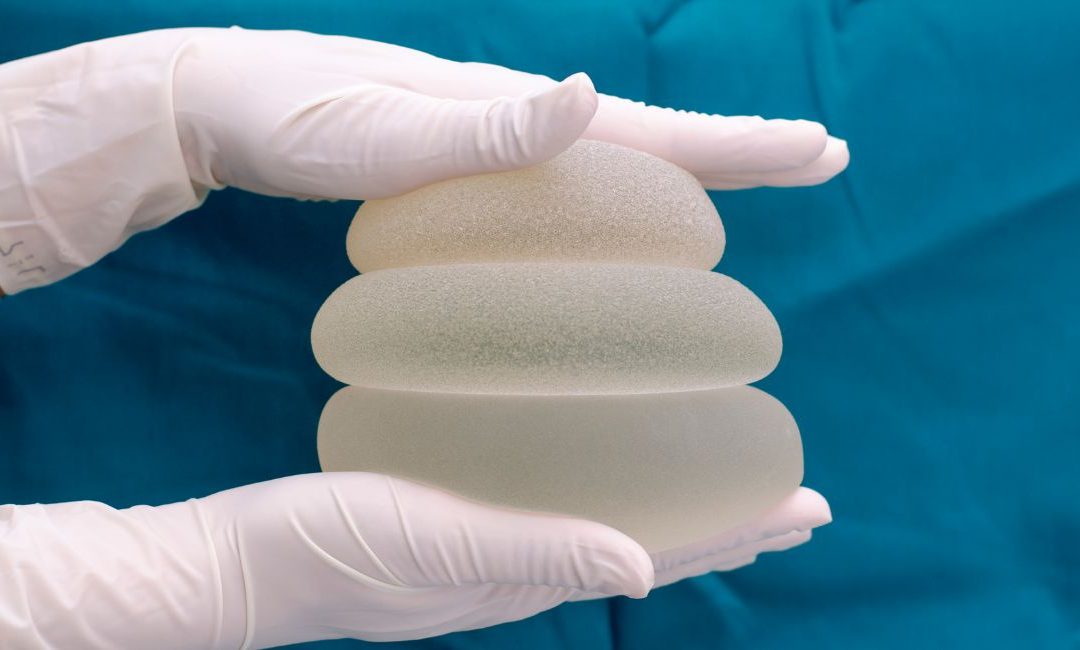Breast implant illness, or BII for short, is a term that women who believe their health issues have stemmed from getting breast implants use. I’m very familiar with this term because I too had breast implants for almost 8 years. I believe that they were one piece of the puzzle as to why I got an autoimmune disease and became extremely ill.
The Symptoms That People Report with Breast Implant Illness
- Anxiety
- Depression
- Hair loss
- Fatigue
- Joint and muscle pain
- Insomnia
- Skin rashes
- Headaches
- Gastrointestinal issues
- Difficulty with memory and concentration
- Dry mouth and eyes
- Chest pain and discomfort
- Heart palpitations
- Diagnosed autoimmune disease (Sjogrens, Rheumatoid Arthritis, Hashimotos, etc.)
When Do Breast Implant Illness Symtpoms Start?
These symptoms may appear almost immediately after surgery, months down the road, or many years later. Physicians do not currently recognize BII as an actual disease or diagnosis code. Oftentimes, BII is made up of a cluster of mysterious symptoms or results in women developing an autoimmune disease. However, women have been getting together, sharing their stories, and speaking up to the public to spread awareness of the dangers that can come from getting breast implants.
Luckily, there are a few organizations that are developing and funding new research on BII. Currently, there have been a few scientific studies showing the association between breast implants and an increased risk of autoimmune and connective tissue diseases (CTD), more specifically Sjogren’s syndrome, Rheumatoid arthritis, and scleroderma. [1]
What causes BII?
We don’t know for certain why women develop BII, but we have some ideas. For instance, one thought is that our bodies have an immune reaction to the materials in the implant. Think about it, an implant is a foreign object made up of tons of chemicals that are seen as toxic to our brains and other organs. Moreover, the components of the implant irritate the body, an immune response sets off, and symptoms like skin rashes, joint pain, and GI distress start popping up.
BII can occur no matter what kind of implants you get: silicone, saline, textured surface, round surface, etc. Even if the implant is saline, it still has a silicone shell. Silicone polymers may be one of the main chemicals highly irritating to the body. Some people may even be genetically predisposed to be more reactive to these compounds than others. However, there are many other toxins in the implants such as formaldehyde, benzene (which is linked to cancer), and heavy metals.
Additionally, the substances of the implant can bleed out of the shell and into the surrounding tissue. The body creates a capsule of scar tissue surrounding the implant. Why? Your body is trying to protect itself from the foreign, toxic bags that are now living there.
Treating Breast Implant Illness with Explants
It’s important to find a board-certified plastic surgeon who specializes in removing breast implants (referred to as a breast explant). Be sure to ask the surgeon their methods of removing the breast implants. The surgeon should remove the implants along with their surrounding capsules. The removal of the capsule is to ensure that toxins and bacteria are not left in the body to recirculate. Removing the scar tissue capsule may also lower the risk of fluid that collects in the breast area post-op. “En bloc capsulectomy” is a term for the removal of the breast implants plus the capsules in one piece. There is also a “total” or “complete” capsulectomy, where the surgeon removes both the implant and capsule, but not in one piece.
Post-explant Treatment
Getting the breast implants out is only the beginning of the healing process. In other words, healing post-explant involves diet changes, stress management, good sleep hygiene, exercise, proper supplements, and some detoxing. Since breast implants cause major distress to the body, other systems start to break down. For example, you may have hormonal imbalances, gut issues, and a body filled with too many toxins.
My Approach to Post-explant Treatment
My approach is to do hormone, gut, mineral, and heavy metal testing to see what imbalances are present in the body. It’s important to focus on nutrition first where you consume nutrient-dense real foods to lower inflammation. Once the doctor has cleared you to start a detoxification program, you will want to open up drainage pathways in the body, support your liver, and incorporate diet and lifestyle changes to help get those excess toxins out of your body. There are many ways to approach hormone and gut imbalances naturally. I recommend either working with me or finding another functional and holistic health practitioner who understands BII to help you restore your health post explant.
You can book your first free call with me using this link.
Outcomes After Breast Explant
A couple of studies have looked at outcomes of women post-breast explant. One study showed that 89% of the patients who removed their implants experienced an improvement of symptoms within 3 months post-surgery. Symptoms that improved included dry eyes, anxiety, joint pain, cognitive issues, chest pain, and fatigue. Another study found almost 70% of women with autoimmune symptoms saw an improvement in their health after breast explant. [2]
However, if you look up #Thehealisreal you will see pictures of women who look like completely different people after they remove their implants. Women’s dark circles, puffy eyes, skin rashes, and redness disappear after their breasts explant. You can find multiple “breast explant” or “breast implant illness” Facebook groups filled with hundreds or thousands of women who are sharing their experiences where they claim they went from miserable to amazing after their breast explant.
My Breast Implant Illness Story
To all the women shouting at the top of their lungs that breast implant illness is real, I agree with you! I got my breast implants around 18 years old. Growing up, I have always had an athletic body and I didn’t like the way I fit into clothing. I wanted to feel more “womanly.” When I got saline implants put in, I felt like a new person, but only from a superficial point of view.
Over the next couple of years after getting the implants put in, my health declined rapidly. I developed memory problems, concentration issues, hair loss, extreme fatigue, digestive issues, anxiety, depression, heart palpitations, skin rashes, joint pain, and the list goes on. Eventually, I got diagnosed with Hashimoto’s thyroiditis, an autoimmune disease of the thyroid. My body didn’t feel like mine anymore. I could always feel the implants inside of me. They bothered me when I slept and when I worked out. I used to lift weights competitively and now it felt like I struggled to do the workouts I loved.
I went down a healing path of changing my diet and lifestyle to heal. Many of my symptoms went away and I got so much better as I put in the work. I wound up having heavy metal toxicity, mold toxicity, candida, gut infections, and a whole host of other issues. These imbalances are common with women who have implants and BII. So I got most of that in order, but something was STILL off even after 5 years of working on myself. I still had skin rashes, dry eyes, dry mouth, and some fatigue that wouldn’t go away.
My Breast Explant Surgery
I finally pulled the trigger and got my breast implants removed.
Literally the next day after surgery my face looked different. My dark circles were lighter, my eyes less puffy, and my appearance seemed to glow. As a functional health practitioner, I knew just what to do after surgery. I worked hard on nutrition, targeted supplementation, sleep, optimizing detoxification, and eventually exercise when I was able to. Now, I feel healthier than I ever have in my life. I don’t struggle with the lingering mysterious symptoms that I had before the breast explant.
What Should You Do If You Think You Have Breast Implant Illness?
- Find a support group. Facebook has a TON of great breast explant or BII support groups.
- Take your time and do your research to find the right surgeon for you. Do not rush. Ask the right questions and talk to other women who have used the surgeon before.
- Get a breast explant. Woo! It seems scary, but I promise that it will be worth it.
- Book a consultation with me or someone else who is experienced in BII to discuss next steps and get your body back to ultimate health.
Book a free call with me using the link here.


Recent Comments